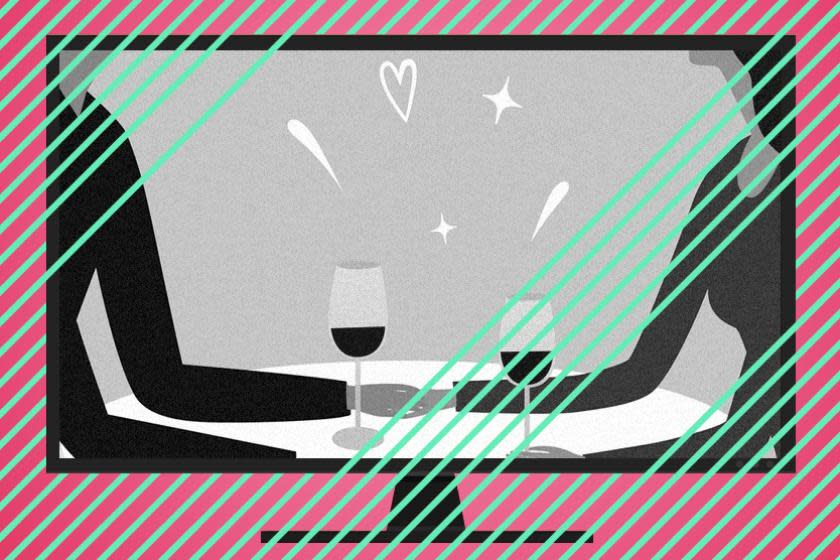I love rom-coms, but where's the female disabled lead?

When was the last time you saw a disabled woman cast as the lead in a rom-com?
If you're scratching your head in bewilderment, that's because ... it's never happened.
Ever.
In fact, the only time I can recall there being a disabled woman character in any rom-com role came in the form of actress Gina McKee's character in Notting Hill. That's it. One character in a vast genre. We live in a world where we don't even associate the words "disability" and "rom-com," which is precisely why I, as a disabled woman, am looking forward to the day when I'll finally see a disabled woman in a leading role.
Trust me, I've seen my fair share of rom-coms. If a Master's degree in the genre existed, I'd have it. I've sighed longingly during Sleepless In Seattle. I've deeply identified with Julia Roberts' character in My Best Friend's Wedding. And my writer heart swooned when Tom Hanks' and Meg Ryan's characters fell in love through words in You've Got Mail.
But each time I watch a rom-com, my heart breaks — long before any actual heartbreak takes place in the movie — when I don't see a disabled actress on-screen. I'm always left with one agonizing question: Where is the diversity? Where are the women like me?
I grew up with very strict pop-culture messages about what constitutes beauty, and I learned pretty early that disabled people were left out of those beauty standards. Accordingly, they were also left out of rom-com scripts and for years, I've struggled with reconciling my love of this genre with its lack of disability representation; at times, I even felt I was betraying the disability community by being so utterly in love and obsessed with these films.
And it's not just big screen Hollywood blockbusters that desperately need of a diversity makeover. The Hallmark Channel should prioritize featuring a disabled woman in its programming, especially because the channel has become synonymous with all things love and romance. Although it offers year-round programming, its slate of holiday movies is consistently met with the most fanfare and success. Yet in the world of Hallmark movies, everyone is (you guessed it!) able-bodied, and I will admit that the warm, fuzzy stories of small towns and snowstorms and chance meetings that swiftly blossom into full-fledged romances in the span of two hours are the stuff that makes my hopeless romantic heart flutter. Every year, I watch dozens of these movies and, in fact, I actually watch them year-round. I've watched journalists fall in love in Snowed Inn Christmas, an unemployed executive run her family's tree lot in Fir Crazy, and a city girl and a cowboy find true love in One Starry Christmas.
The storylines are as sweet as candy canes. The lookalike cast? Not so much. The network has received criticism recently for its diversity problems, something Bill Abbott, former CEO of Hallmark parent Crown Media Family Networks, spoke about late last year.
"In terms of broadening out the demographic, it's something we're always thinking about, always considering," he said, "and we'll continue to make the movies where the best scripts are delivered to us and what we think have the most potential."
It's 2020, so if those "best scripts" don't include disabled people, I fear true representation will never happen. I'm not asking for every single movie to feature a disabled lead, but surely, any amount would be an improvement from none at all. Of course I want to see people like me on the screen, but I also want the able-bodied world to see people like me on the screen. Contrary to that age-old stereotype, disabled people aren't asexual beings who live in solitude. I would love for the whole world to see that, yes, we deserve love — and our own rom-com plot lines — just like everyone else.
Our society has a long history of telling people with disabilities that we're not pretty. I was reminded of that recently when I was told I was too ugly to post selfies — I clapped back with this viral tweet. I can't help but think that featuring people with disabilities more in mainstream culture — in movies, certainly — would counteract those ignorant, hurtful beliefs.
Finally, a word of advice to future rom-com writers and directors: When you finally do rewrite the script for how rom-coms are supposed to be, please make sure to write your disabled characters as strong and independent — not as tokens of inspiration or objects of pity. Only then will disabled people like myself truly get our Happily Ever After.
Want more essential commentary and analysis like this delivered straight to your inbox? Sign up for The Week's "Today's best articles" newsletter here.
More stories from theweek.com
Harvard scientist predicts coronavirus will infect up to 70 percent of humanity
American soldier in South Korea tests positive for coronavirus
Bernie Sanders says it's time to stop ignoring 'the suffering of the Palestinian people'

